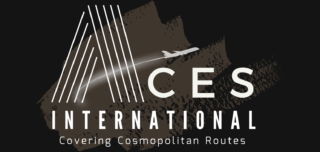Finding work experience placements at a university can be a great way to boost your career credentials. But how do you know which job to apply for, and where?
The job search process can be difficult, especially when you first start looking for work. But it doesn’t have to be. At university, you can serve up your job application with experience placements, which can help you find some experience to put on your resume. Internships, co-ops, and practicums are generally considered to experience placements, and employers often look for students with strong academic performance and grades.
Are you looking for work experience placements that allow you to gain valuable skills while earning some money on the side? Consider working part-time or summer employment at a university. Universities typically need people with experience and abilities in a variety of areas to work in the areas most needed, including teaching, editing, research, and clerical work. These positions can help prepare you for college and a career, all while earning an income that can help you pay for tuition, books, and other educational expenses.
Career – Experience for Placements University
The qualification, and experience for skills, use industry-specific units of competency to prepare people with the skills, knowledge, and behaviors they need to find employment in a range of sectors.
Industrial placements
Industrial placements are an integral part of the higher education course. It is an opportunity for students to experience industry and apply what they have learned in the classroom to a practical situation. Industrial training provides valuable hands-on experience for students, instructors, and employers. They spend a period of time working at an employer following an agreed-upon work schedule. Students under this agreement are not interns and therefore do not qualify as interns. Industrial placements are usually paid positions, but students often work them as part of their course.
Professional practice and training
If you’re thinking about applying to a university but aren’t sure if you want to go, you may want to consider applying to a university with an experience program. It allows you to complete an undergraduate degree while you’re still in high school, rather than waiting until you’ve graduated from high school. A program like this gives you the freedom to explore your options and to decide what you want to do while still having the opportunity to work towards a degree.
Internship
Internships provide valuable work experience for students and earn them credit toward their degrees. They are such an important part of a student’s college career. Internships build connections and future allies and can even lead to permanent employment.
International exchange
International exchange can be a real eye-opener, whether it happens on a broad scale or in a more focused, short-term exchange. Short-term exchanges, such as studying abroad or an internship, allow students the chance to experience life in another culture and country. Exploring a new city, meeting new classmates, and experiencing new traditions can be eye-opening experiences that help students gain a new perspective on life and themselves.
Vacation courses
Vacation courses can provide a great boost to your education. You can complete your degree faster, and you’ll be able to focus your full attention on your studies. Plus, because you won’t be attending classes, you won’t have to rearrange your life for classes to fit in.
If you’re a recent college grad, you may be worried about how to find your first job. Fortunately, there are thousands of employers looking for recent grads like you to fill their job openings all around the world. But, how do you find those great opportunities?
After you spend the first years of your education preparing for your future career, you may find that it’s finally time to find work experience placements. But how do you find work placements for university majors? In such situations, students often prefer to take up programs at online colleges that can award work experience credits. These institutions (such as these Colleges with work experience credits) provide work experience credits to students for their professional achievements. Their programs encourage students to gain practical work experience and allow students to earn credits for their skills. This approach can benefit individuals by bridging the gap between theory and practice, making education more practical and applicable to their future careers. You can also look for placement opportunities at many schools through your school’s career center. But if you’re looking for paid work, your university’s employment office is likely the best place to look.
If you’re looking to find work experience placement as part of your university studies, you’ve come to the right place. It’s easy to find opportunities at any number of places ranging from big businesses to small companies and non-profits. To find work experience placement, you’ll need to contact each company that you’re interested in working with.

